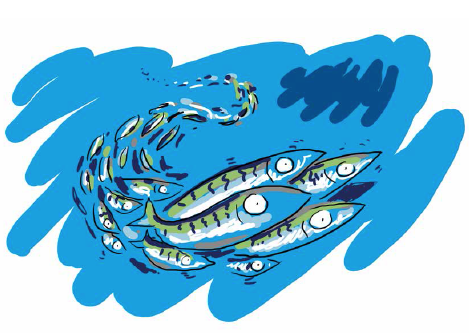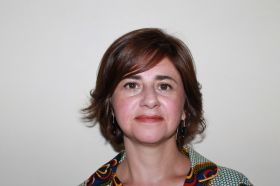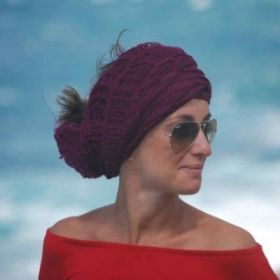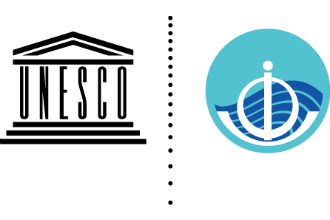Course Overview
This first Ocean Literacy MOOC aims at sensitise and enable teachers and students to incorporate ocean literacy into educational programmes.
Education in its broader understanding (in both formal and informal settings) serves as a high potential channel to reach young citizens. As a lack of sufficient ‘Ocean Literacy’ has been identified in many countries, this clearly presents a barrier for citizens to engage in ocean responsible behaviour or consider ocean-related careers.
To overcome this, it is recommended to develop education to provide the capacity to understand environmental issues, to participate in decision-making processes and to bring about changes in behaviour.
Ocean Literacy can be seen as a way of incorporating scientific literacy in practice in education, whereby scientific literacy not only refers to a person's knowledge of science but also to his or her ability to use this knowledge in making socially responsible decisions.
Why Ocean Literacy?
The Ocean is vitally important to Europe. The EU Member States have between them the largest maritime territory in the world (approx 3.9M sq. km) and a coastline of some 100,000 km. Over 16% of Europe’s population lives by the coast, of which 85% is now developed. 90% of all EU external trade goes by sea and European ship owners control almost 40% of the world fleet. According to the EU Blue Growth programme, the 'blue' economy represents 5.4 million jobs and generates a gross added value of almost €500 billion a year, with further growth possible. European seas contributed in shaping the history and economy of western societies, and the European lifestyles.
What is Ocean Literacy?
Ocean Literacy is "an understanding of the ocean's influence on you, and your influence on the ocean".
The Ocean Literacy Framework was developed by a group of scientists and educators from the ocean sciences education community in the US. Their efforts built on previous work to define ocean literacy, assess what the public knows about the ocean, and redress the lack of ocean-related content in state and national science education standards, instructional materials and assessments.
Ocean Literacy (OL) presupposes not only that the public is knowledgeable but also will be concerned about marine issues and develop responsible behaviour towards the seas and ocean and their resources. Developing Ocean Education is therefore a logical step to develop a more ocean-literate public and enhance marine citizenship, as participation in environmental education has been identified as the most important predictor of environmental behaviour.
The Sea Change Project aims to go beyond a simple reproduction of knowledge about the ocean, and instead trigger the ability to make informed and responsible decisions of ocean issues. This implies moving European citizens closer to an accountable position of acting responsibly and in protection of marine resources. An ocean-literate citizen:
- translates ocean knowledge into action;
- is capable of communicating about the interdependencies between humans and the ocean in a meaningful way;
- can make informed and responsible decisions.
Course structure
The course is divided in two sections: the first one is more narrative and introduces you to the Ocean Literacy seven principles, becoming familiar with them.
A specific focus will be dedicated to how to bring the Ocean Literacy Principles directly into your classroom with lesson tips, advice, references and activities.
The second part is more interactive and participative with contemporary and emerging issues, such as seafood, marine pollution, human health that will induce you to a simulation into a “real-world experiences" with a problems-solutions approach.
We are
Experienced educators, tutors, professors, researchers will be happy to accompany you through your first adventure on Ocean Literacy MOOC!
The Sea Change partners will support us with their precious knowledge and experience.
***We strongly encourage you to share your thoughts, tips, comments and ideas during this course!***
Learning Objectives
At the end of this course you'll be able to take into your classroom the Ocean Literacy principles and concepts with different pedagogical approaches: interdisciplinary, integrated by nature, enquiry-based and hands-on.
You'll become familiar with Ocean Literacy Principles and you'll be able to suggest to your students engagement and exploratory (self-discovery) learning, as well as to develop an enquiry-based cross curricular program that connects science closely with the arts, citizenship and ethics.
You'll be familiar with contemporary and emerging issues such as “real-world experiences”, contact with scientists, experimental activities or fieldwork, and these will be viewed as productive pedagogical approaches to teaching and learning.
More specifically, you'll be able to:
- Improve the underdstanding of the importance of the ocean to the humankind;
- Enhancing communication about the ocean in a meaningful way;
- Developing ability to make informed and responsible decisions regarding the ocean and its resources.

Outcomes
You'll be able to take into your classroom the Ocean Literacy principles and concepts with a real planning, activities and lesson plans developed with our community.
You'll be able to suggest to your students engagement and exploratory (self-discovery) learning, as well as develop enquiry-based activities with a interdisciplinary context.
You'll be part of an international group where you can have feedback and communication between science centres, educators, reasearchers and stakeholders belonging to the private sector within blue growth and the blue economy.

Certification and Additional Info
A participation certificate will be issued to all those that complete at least 70% of the course activities.
Course Structure
- Lesson 1 - Let's introduce ourselves
- Lesson 2 - Let's know the principles
- Lesson 3 - Lesson tips: ocean literacy in your classroom
- Lesson 4 - How to organize hands-on activities on Ocean and Climate
- Lesson 5 - How to organize hands-on activities on Sea Food, Marine Pollution and Human Health
- Lesson 6 - How to organize hands-on activities on the Blue Gym effect and the ocean as a source of human medicine
Teacher
Francesca Santoro
I am Programme Specialist at the Intergovernmental Oceanographic Commission of UNESCO where I am in charge of ocean literacy and ocean science communication activities. I hold an MSc in Environmental Sciences and a PhD in Analysis and Governance for Sustainable Development. Before joining the IOC in 2011 I was lecturer at Ca' Foscari University, and I also collaborated with several research centres and universities such as the European Commission Joint Research Centre and the University of Maastricht as Marie Curie fellow.

Coauthor
Selvaggia Santin
I'm working at CMCC (EuroMediterranean Center on Climate Change) in the Communication & Media Office. I hold a Msc in Biology and a PhD in Biodiversity and Evolution. I spent different years as science editor writing and creating educational materials for publishing company.

Coauthor
Peter Tuddenham



